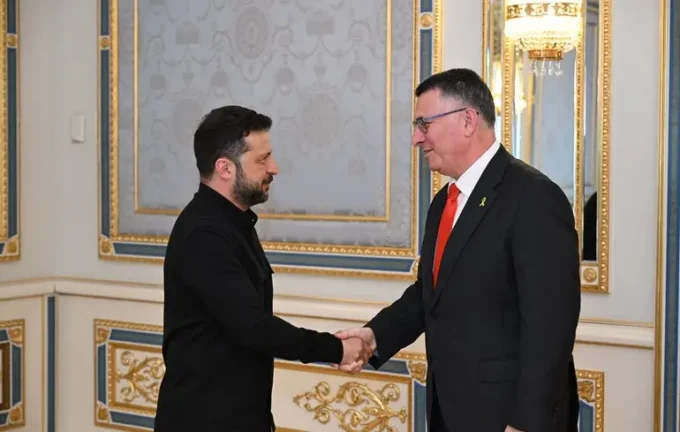Israeli Foreign Minister Gidon Saar Calls for Designation of IRGC as a Terrorist Organization and Discusses Regional Security in Kyiv

On Wednesday, July 23, prominent Israeli diplomat and Foreign Minister Gidon Saar visited Kyiv, where he held a meeting with Ukrainian President Volodymyr Zelensky. During their talks, Saar expressed strong support for Ukraine and addressed significant international issues, including tensions with Iran and regional security concerns. The discussions were characterized as friendly and service-oriented, aimed at bolstering bilateral relations and regional stability. A key focus of Saar’s visit was the Iranian threat, particularly the support that Tehran provides to terrorist organizations and regional destabilization efforts. He urged Ukraine to take a decisive step by initiating the recognition of the Islamic Revolutionary Guard Corps (IRGC) as a terrorist organization in the Ukrainian Verkhovna Rada, emphasizing that such recognition would serve as an important measure in increasing global pressure against Iran. Additionally, the diplomat highlighted the importance of activating the SnapBack mechanism by the European trio (Germany, France, and the UK), aiming to restore sanctions on Iran should it violate international agreements. He also handed over to Zelensky a detailed report from the Dina Project concerning violence and sexual abuse committed by Hamas on October 7, 2023. Prior to these discussions, Saar visited Babi Yar, where he expressed appreciation for Ukraine’s efforts in preserving the memory of the Holocaust and combating anti-Semitism. His visit is regarded as the most significant Israeli diplomatic mission to Kyiv in the past year and a half, reflecting the importance of Ukrainian-Israeli relations. This diplomatic outreach was notable for the Ukrainian public, especially considering that last month a former Israeli Foreign Minister, Eli Cohen, visited Kyiv. Experts suggest that such visits demonstrate a mutual desire to deepen cooperation in security, humanitarian, and economic sectors despite complex geopolitical challenges.

